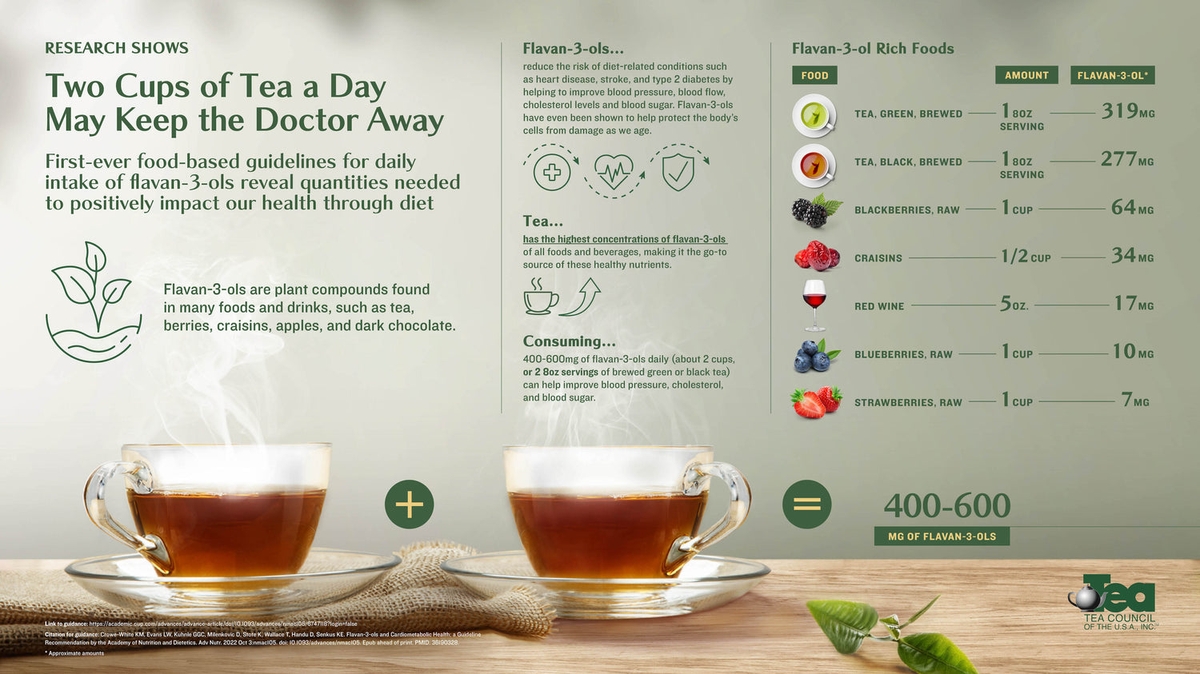
Tea, a popular beverage enjoyed worldwide, is more than just a comforting drink. From green to black, hibiscus to yellow, each type of tea comes packed with potential health benefits. Recent studies suggest that tea consumption might be linked to a reduced risk of developing certain types of cancers, type 2 diabetes, Parkinson’s disease, and heart disease. While more research is needed to fully understand these mechanisms, these findings do highlight the potential health benefits of incorporating tea into one’s diet.
The Health Benefits of Tea
Tea is known to improve heart health, aid weight loss, boost the immune system, and provide antioxidants. The presence of polyphenols in tea, especially green and black tea, has been linked with improved oral health. A cross-sectional study involving 6,387 older adults found that green tea significantly improved oral health in men, while black tea did the same for women. However, it’s crucial to understand that tea consumption alone does not guarantee good oral health; maintaining good brushing habits is equally important.
Hibiscus Tea: A Tart and Healthy Brew
Not all healthful teas are from the traditional tea plant. Hibiscus tea, made from the Hibiscus sabdariffa plant, is a caffeine-free beverage known for its dark red color and tart fruity flavor. This tea is rich in polyphenols, including anthocyanin, and studies suggest it may help lower blood pressure and provide heart health benefits by reducing inflammation and improving blood vessel function. However, more research is needed to confirm its effects on chronic diseases.
The Golden Brew: Health Benefits of Yellow Tea
Originating from China, yellow tea offers a unique flavor along with several health benefits. It contains antioxidants, polyphenols, and catechins which can help neutralize free radicals, reduce oxidative stress, and reduce the risk of heart failure and cardiovascular diseases. This tea type can also aid in weight management, promote relaxation, reduce stress, soothe digestive issues, promote oral health, protect the skin against oxidative stress, and boost overall immunity. While yellow tea does have many benefits, it’s crucial to remember that its caffeine content can cause sleep difficulties, jitteriness, restlessness, or nervousness in some individuals. Excessive consumption may also lead to feelings of nausea, allergic reactions, and teeth staining over time.
Incorporating Tea Into Your Diet
Given the potential health benefits, incorporating tea into your daily routine could be a wise choice. It’s not just about drinking tea; it’s about choosing the right type of tea that suits your health needs and preferences. Whether you prefer the robust flavor of black tea or the soothing taste of green tea, the unique tartness of hibiscus tea, or the delicate flavor of yellow tea, each brew has its unique benefits.
In conclusion, tea offers more than a warm soothing experience. Its potential health benefits, from heart health to oral health and even stress reduction, make it a worthy addition to any diet. Remember, the key to reaping these benefits is regular consumption and maintaining a balanced diet alongside your favorite brew.
